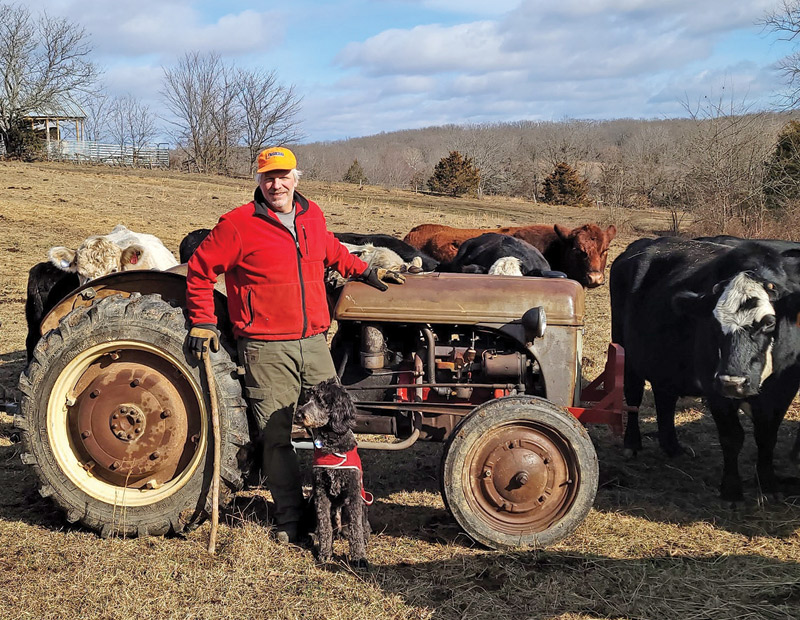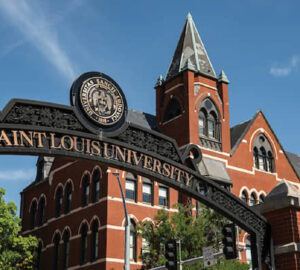st. albans | The Inns at St. Albans has hired a general manager as part of its initiative to transform the property into a historic travel and meeting destination. In his newly created position, Schuyler Clark will be responsible for all operations at the complex, which dates to 1843. Last year the company began building a $4 million, 11,000-square-foot lodge that will add 12 overnight rooms (for a total of 24 at The Inns) and additional meeting space for up to 25. Scheduled for completion by mid 2021, the lodge is part of an overall vision to redevelop the property into a resort-caliber destination. The Inns at St. Albans, nestled in hills first charted by Lewis and Clark near the Missouri River, is perched on what was once America’s western frontier. The scenic area is steeped in Americana—from the Osage tribe to Daniel Boone and even industrialists. Theodore Link, renowned designer of St. Louis Union Station, built The Studio Inn. For many years in the late 19th and early 20th centuries, St. Albans served as the country retreat of wealthy St. Louis families. Driving onto the vast property from the main road has given many a visitor the feeling of being magically transported into the Scottish highlands.
the metro
As they say (whoever ‘they’ are), if there’s a sucker born every minute, there’s a scam created every 30 seconds. (OK, we just said that.) The latest scams, plural, relate to the COVID-19 vaccine. There’s a lot of stress and uncertainty about who, where and when, and the ‘frustration’ needle for many of us who’ve already self-quarantined for almost nine months may be swinging into the red—the ‘desperation’ zone. And the cynicism of scammers thrives on impatient, desperate people. Don’t get sucked into any of these five solicitations detailed for consumers by the Federal Trade Commission. And there are probably many more yet to be reported. 1. Being asked to pay out of pocket for the vaccine. No. It’s free, unless there’s a small fee at the administration site. 2. Being asked to pay to get on a list for an appointment or for early access. You can get on a waiting list at any number of providers, but there’s no ‘cutting in line.’ 3. Being asked to respond immediately to a phone call, email or message via social-media. Solicitations? Never. 4. Getting contacted by ‘the government’ or ‘your health plan.’ Be wary. The first is definitely bogus. But your health plan or a legitimate provider may be calling to alert you to an available appointment. 5. Asking you to pay for the vaccine to be shipped directly to you. There are no secret sources of the vaccine, which in many cases needs to remain refrigerated in sub-zero temperatures until use. Bottom line? Be patient. We’ve all waited this long, after all, so it won’t hurt to hunker down just a little bit longer.
st. louis
Throughout February, The Pageant will release limited-edition poster reprints every Monday at noon. All proceeds will support The Pageant, Delmar Hall and staff at both venues. These 12-inch by 18-inch numbered editions of 10—and only 10!—are available exclusively through the venue’s eBay store. Pageant management and staff are still combing through the archives from 20 years of rock ‘n’ roll, alt-country, alt-rock, comedy, Americana … plus other productions just too dang hard to categorize. Anyone who wants to replace (or add to) that velvet Elvis or Hendrix blacklight poster on the wall, check back Feb. 15 and 22 at 12 p.m. sharp.
clayton
Who’s ready for a could-be Facebook-sized, feel-good success story, but with what seems like a possible happier ending? Or at least with fewer rancorous Congressional hearings. When the economic lemon that is the coronavirus pandemic claimed in-school learning as a casualty last spring, Chuck Cohn had already been perfecting his lemonade recipe for more than 10 years. His ‘lemonade stand’ is Varsity Tutors, which started as a way of matching students with in-person tutors. Cohn had greatly benefited from friends at WashU who tutored him when he was struggling to comprehend calculus. In 2007, he launched the company from his dorm room as a way to market his friends’ services to a wider audience. Fast-forward to last spring, when digital meetings exploded via Zoom and entrepreneurs like Cohn were well-positioned to be wildly successful—and of maximum service. So, is Cohn a mensch? Well, here’s the mitzvah. When the pandemic hit, Varsity offered its remote-learning K-12 platform to students at no charge. (Mark Zuckerberg he ain’t.) The company approached $120 million in revenue for 2020. Of course, 2021 started off no less a lemon. But next thing you know, it’s all rainbows and unicorns for Cohn’s brainchild, now known as Nerdy Inc. A unicorn, at least, that is. That’s what a company becoming capitalized for $1 billion is known as in investment circles. Nerdy Inc. announced Jan. 29 that it had received a $1.7 billion investment. Gulp. So that means it’s off to Silicon Valley, right? Not so fast. Nerdy, which will be traded on the New York Stock Exchange as NRDY, will be the latest tech gem to stay right here in The Lou.
notable neighbors
ladue
Kent Evans of Ladue, who, in less uncertain times, is a commercial real estate developer, considers himself blessed that in the early 1940s, his great-grandparents acquired a farm. Now known as Pierce Creek Cattle Company, it is located in Lonedell, Missouri, about an hour south of the StL. Evans, 53, still drives his great-granddad’s Ford 9N tractor, which came off the assembly line with only steel rims, due to the rubber shortage of WWII. As you can see in the photo, the venerable antique has tires on it nowadays; it runs just fine. Back when he was wearing a construction helmet instead of a cap, Evans worked projects in the metro, chief among them the redevelopment of Crestwood Plaza, as well as jobs in Denver and Panama City Beach, Florida. Since the pandemic has had his day job on ice since last March, Evans spends his days ‘in the saddle,’ restoring 240-some acres of pastureland for cattle. There are about 60 head, soon to be more, since it’s right around calving season. “We’re grass farmers,” he says—adding with a chuckle, “and the cattle are really just a byproduct.” You may remember the concept of crop rotation from grade school social studies; keeping grass and soil healthy necessitates a similar approach. You can’t just let the herd graze wherever the heck they want. It’s highly inefficient, Evans points out. “If you leave them the entire grocery store, they’ll only eat the best stuff.” The rancher must move the herd from field to field. Healthy grass needs about two months to regenerate, so the roots mustn’t be chomped down to a nub. Meanwhile, the farm’s nearly 80 years of history are represented by something as ordinary as fenceposts. Generations ago, they were fashioned from cedar. As those have all but rotted away, Evans has been replacing them with steel. And there’s plenty of water, just not ideally situated. Suffice it to say, there’s only so much downtime on the farm. As a small operation, Pierce Creek cattle are raised and processed humanely; no steroids or antibiotics. “They live on mother’s milk and grass.” Marketing the beef is both old school and newfangled. Evans has about 300 residential customers among the 3 million or so prospects in the metro, and most customer contact and marketing is via social media. Remember the days of milk and bread delivery to your door? Unless you were born in the 1950s or earlier, of course you don’t. Well, Pierce Creek beef is delivered in much the same fashion as milk and bread way back when: from the butcher to your doorstep. What’s more, Evans’ business model doesn’t necessitate a stressful, overcrowded feedlot, dry ice and interstate transport via train, plane or semi. And as the land speaks to him, he’s more than willing to pass along what he’s learned to his neighbors. It’s not a high-margin business, by any means. “It seems like everybody’s making money except the ranchers,” he says. Evans et al. are working to change that. Visit piercecreekcattlecompany.com.










